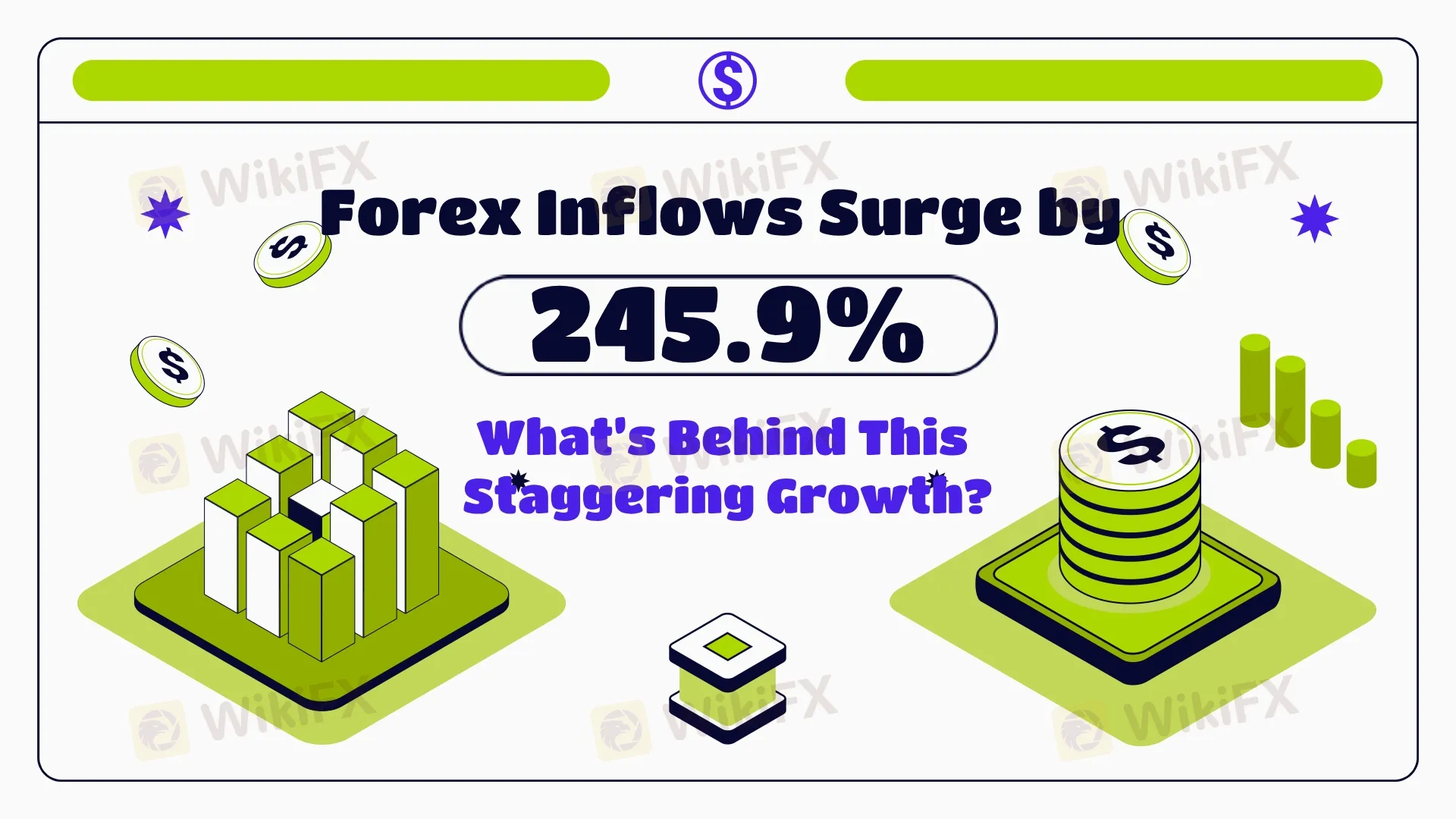简体中文
繁體中文
English
Pусский
日本語
ภาษาไทย
Tiếng Việt
Bahasa Indonesia
Español
हिन्दी
Filippiiniläinen
Français
Deutsch
Português
Türkçe
한국어
العربية
Forex Inflows Surge by 245.9%, What’s Behind This Staggering Growth?
Abstract:As of November 2024, Nigeria's net foreign exchange inflows have surged to $5.95 billion over the past year, marking an impressive increase of 245.9%, with a significant rise in foreign currency flowing into the country's economy.

According to the Central Bank of Nigeria (CBN) economic report, the country's foreign exchange inflows have notably increased over the past year. In November 2023, the foreign exchange inflows were $1.7 billion, whereas this figure surged to $5.95 billion in November 2024, reflecting strong momentum in foreign exchange inflows.
However, on a monthly basis, the net foreign exchange inflows in November 2024 slightly decreased compared to October due to reduced foreign exchange inflows through banking channels. In October 2024, Nigeria's net foreign exchange inflows were $4.86 billion, whereas in November, it rose to $5.95 billion. Meanwhile, total foreign exchange inflows decreased from $9.15 billion in October to $8.4 billion in November. Notably, foreign exchange outflows also saw a significant decline, dropping from $4.29 billion to $2.45 billion.
During this period, the Naira depreciated against the US dollar. Additionally, the average foreign exchange turnover on the Nigerian Financial Foreign Exchange Market (NFEM) increased by 24.78% from $241.65 million in October 2024 to $301.52 million in November.
Net Foreign Exchange Flow Explained
Net foreign exchange flow refers to the difference between the total amount of foreign exchange flowing into a country or economy and the total amount flowing out within a given period. It reflects the movement of capital in the foreign exchange market of that economy. Specifically, when net foreign exchange flow is positive, it means the foreign exchange inflows into the economy exceed the outflows, indicating that the country's foreign exchange reserves are being replenished and there is a healthy inflow of capital.
Disclaimer:
The views in this article only represent the author's personal views, and do not constitute investment advice on this platform. This platform does not guarantee the accuracy, completeness and timeliness of the information in the article, and will not be liable for any loss caused by the use of or reliance on the information in the article.
Read more

Rising Tensions Push Oil Prices Higher
Fresh Middle East conflict sends shockwaves through energy markets.

Why Your Stop Loss Keeps Getting Hit & How to Fix It
Many new traders run into the same frustrating problem. They analyse the market, place a trade, and watch the price go against them just enough to hit their stop loss. Then, like a bad joke, the price moves exactly in their predicted direction. Read this article to learn how to fix this issue for good!

Safe-Haven Surge: Gold Shines Amid Market Turmoil
Rising geopolitical tensions fuel a flight to safety, propelling gold past key resistance and positioning it as a top-performing asset in today’s volatile market.

Forex Trading Challenges in India
Explore this guide to understand the challenges that deter India's forex market from unleashing its true potential.
WikiFX Broker
Latest News
Why Your Stop Loss Keeps Getting Hit & How to Fix It
IronFX Review 2025: Is This Broker Trustworthy or a Scam?
Exclusive Markets MT4 and MT5 Review 2025
Rising Tensions Push Oil Prices Higher
Oil price trends are worrying, and the market faces multiple challenges.
Currency Calculator


